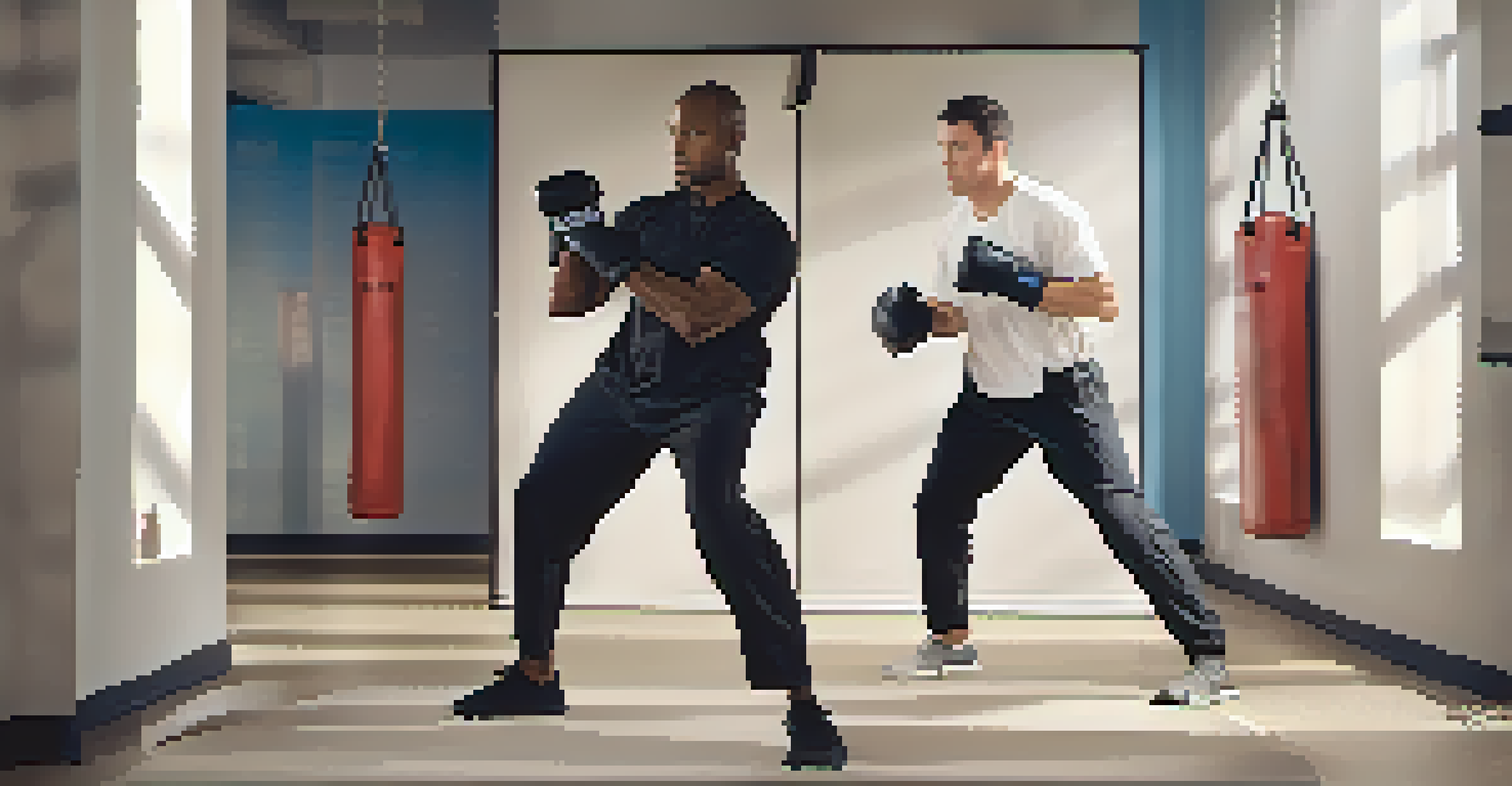How to Choose the Right Self Defense Weapon for Your Needs

Understand Your Personal Safety Needs and Environment
Choosing the right self-defense weapon starts with understanding your unique safety needs. Are you often in crowded places, or do you spend time in isolated areas? Your environment plays a crucial role in determining which self-defense tool might be most effective for you.
The best defense is a good offense.
Consider factors like local crime rates, your lifestyle, and your comfort level with various weapons. For instance, if you frequently walk alone at night, a compact personal alarm or pepper spray might be more suitable than a firearm. Knowing your surroundings helps tailor your choice to your specific context.
Ultimately, the best self-defense weapon is one that you feel comfortable carrying and using. Taking the time to assess your environment and personal circumstances will empower you to make an informed decision.
Evaluate the Types of Self Defense Weapons Available
There is a wide array of self-defense weapons to choose from, including pepper spray, stun guns, personal alarms, and even firearms. Each type has its own set of advantages and disadvantages. For instance, pepper spray is portable and easy to use but may be less effective in windy conditions.

On the other hand, stun guns require close proximity to the attacker, which might not always be feasible. Understanding how each weapon operates and when to best use it can help narrow down your options. It’s also beneficial to familiarize yourself with local laws regarding these weapons.
Understand Your Safety Needs
Assessing your environment and personal circumstances is crucial in choosing the right self-defense weapon.
Taking the time to evaluate these types of self-defense weapons can clarify which aligns best with your situation. This assessment will also help you feel more confident in your choice, knowing you’ve explored various avenues.
Consider the Legal Aspects of Self Defense Weapons
Before purchasing a self-defense weapon, it's vital to understand the legal implications. Laws regarding self-defense weapons can vary significantly between states and countries. For instance, while pepper spray is legal in many places, there may be restrictions on its size or strength.
You have to be smart; you have to be prepared. If you're going to be in a situation where you could potentially be harmed, you need to have a plan.
Researching these laws ensures that you remain compliant and avoid potential legal troubles. Additionally, understanding the legal definition of self-defense in your area can help inform your choice and usage of a weapon. Being well-informed about the legal landscape empowers you to act responsibly.
Incorporating this legal knowledge into your decision-making process is essential. It not only protects you legally but also boosts your confidence in using your chosen weapon effectively.
Assess Your Comfort Level with Different Weapons
Your comfort level with a self-defense weapon is crucial. Some people might feel at ease with a firearm, while others may prefer non-lethal options like pepper spray or a personal alarm. It’s important to choose a weapon that doesn’t intimidate you and that you can confidently handle in a stressful situation.
Practice is key. If you opt for a firearm, seek professional training to build your skills and confidence. For non-lethal options, familiarize yourself with their operation and practice using them in safe environments.
Know Legal Implications
Familiarizing yourself with local laws regarding self-defense weapons is essential to ensure compliance and avoid legal issues.
Ultimately, selecting a weapon you feel comfortable with will significantly influence your readiness to use it if necessary. Confidence in your choice can make all the difference in a self-defense scenario.
Think About Ease of Carrying Your Chosen Weapon
When selecting a self-defense weapon, consider its portability. If a weapon is too bulky or cumbersome, you may not carry it regularly, which defeats its purpose. Ideally, you want something that fits seamlessly into your daily routine, whether that’s in your bag, pocket, or on your person.
For example, pepper spray can easily clip to a keychain, making it convenient to access in emergencies. A personal alarm is typically small and lightweight, allowing you to carry it without hassle. Choosing a weapon that integrates into your lifestyle will ensure that you always have it on hand when you need it.
Ultimately, the easier it is to carry your chosen self-defense weapon, the more likely you are to use it effectively. This practicality is a key factor in making your decision.
Evaluate Training and Practice Opportunities
Training and practice are essential components of using any self-defense weapon effectively. Many self-defense tools require specific techniques or skills to use them properly. For example, understanding how to aim and deploy pepper spray can make a significant difference in its effectiveness.
Look for local classes or online resources that focus on your chosen weapon. Participating in training sessions not only builds your skills but also boosts your confidence in using the weapon effectively. Additionally, practicing regularly helps reinforce what you've learned, making your response more instinctive during a high-pressure situation.
Select a Comfortable Weapon
Choosing a self-defense weapon that you feel comfortable handling boosts your confidence and readiness in critical situations.
Incorporating training into your routine will ensure that you're not just carrying a self-defense weapon but also know how to use it when it matters most. This knowledge is empowering and can enhance your overall sense of personal safety.
Make a Decision and Trust Your Instincts
After considering all the factors—your environment, legal aspects, comfort level, and training opportunities—it's time to make a decision. Trusting your instincts is crucial; after all, you know your needs better than anyone else. Choose a self-defense weapon that resonates with you and aligns with your personal safety philosophy.
Once you’ve made your choice, commit to it. Invest time in training and practice to ensure that you are prepared should the need arise. Remember, the goal is to empower yourself and enhance your sense of security.

Ultimately, trusting your instincts while making this decision is vital. It’s about finding a balance between practicality and personal comfort, leading to a choice that feels right for you.